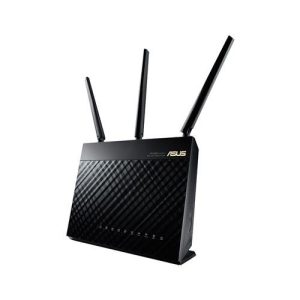

Are you having problems streaming Netflix? A startup called Aterlo Networks claims it has a solution: download Netflix shows and cache them locally so you can view them later without problems.
Aterlo’s “NightShift” service could theoretically help anyone with slow home Internet connections access high-definition Netflix video. But Aterlo is primarily targeting it at satellite Internet customers who have to abide by strict data caps during the day and evening hours when most people watch streaming video.
“Most satellite subscriptions in the US have a 10GB to 25GB monthly usage restriction, which effectively makes it impossible to use Netflix or other streaming video,” Aterlo CTO Scot Loach told Ars in a phone interview.
How to use NightShift.
Though satellite services have small monthly data caps, they allow customers to download more data in the middle of the night when most people are asleep. For example, ViaSat’s Exede Internet service has monthly caps of just 12GB to 30GB, but it allows unmetered usage for five hours each night, either from midnight to 5am or 3am to 8am.
That’s when NightShift does its work, downloading shows and caching them on your home network so they can be watched the next day without interruption or fear of exceeding data caps, Aterlo says. NightShift works automatically in the background, scheduling a recording when a customer starts watching a Netflix show on any device connected to the customer’s home Wi-Fi network. Shows are then recorded during whatever hours of the day or night the customer has specified.
NightShift is perfectly legal, in part because it operates within strict limits, Loach said. While the Netflix content is saved to storage attached to a home router, a customer can’t download shows onto a laptop or other device and watch them without an Internet connection.
“It’s more restrictive than what you might think of as traditional DVR,” Loach said. “We’re actually copying the same DRM encrypted content that’s served by the [Netflix] CDN [content delivery network].”
When a customer clicks play on a Netflix show that’s already been cached locally, NightShift intercepts the stream and delivers it from the router-attached storage. But customers can’t start the stream without an authenticated Netflix session.
“The only way this content can technically be played is with an online, activated, authenticated Netflix player that is connected to Netflix with a logged-in user,” Loach said. “If they don’t have a valid Netflix account they could never play these files. If Netflix pulls a video because their agreement with the content owner runs out, there’s no way to play these videos. They’d be removed from our device.”
Loach pointed to the 1984 Supreme Court ruling involving Betamax and another court decision involving Cablevision’s DVR system in 2010, both of which held that copying shows to watch them later is not copyright infringement.
Moreover, the Digital Millennium Copyright Act (DMCA) has a safe harbor for caching, he noted. NightShift’s video caching works similarly to technology that Internet providers use to manage their networks more efficiently and move content closer to customers’ homes, but the NightShift caching occurs in the home rather than in a data center.
“There’s a safe harbor provision in the DMCA for network caching, which is when a machine automatically makes a decision about what content to copy,” Loach said. “That’s allowed for the purpose of optimizing network resources, which is exactly what we’re doing. From a legal perspective, we certainly believe we’re in the clear.”
Netflix declined comment when contacted by Ars. Loach said Aterlo would like to work with Netflix but said it isn’t technically necessary. “They’re aware we exist,” he said.
While Amazon allows offline viewing for its streaming video service, Netflix doesn’t provide a way to download shows. But Netflix’s terms of use allow downloads if they’re for “caching necessary for personal use.”
Loach and three other Aterlo co-founders are former employees of Sandvine, which is known for its research on Internet traffic and products that help Internet providers manage network congestion.
Slow start, big ambitions
NightShift was in beta last year and has been generally available for a few months, with “hundreds” of customers having signed up so far, Loach said. Although Aterlo’s customer base is small now, the company hopes to expand it by partnering with Internet service providers. Aterlo is primarily marketing the service to individual satellite Internet users in the US, but it just signed a deal with a satellite provider in New Zealand called Wireless Nation to offer NightShift to its customers.
NightShift’s software can’t be installed on just any piece of hardware. For now, it’s supported only on seven Asus routers, because Asus is more open to third-party development than most other router vendors, Loach said. The company will likely port its software to other routers in the future.
You can buy one of the supported Asus routers, attach USB storage, and set up NightShift yourself, or purchase a router-and-storage kit from Aterlo that has everything preinstalled for $99. Besides the up-front cost, NightShift costs $6.99 a month.
While the service only works with Netflix today, Loach said they may extend it to other services like Amazon Prime, HBO Now, and Hulu.
Once configured, NightShift operates automatically in the background and works with any Netflix client connected to the home network, whether a computer, set-top box, or mobile device. To set it up, a customer logs into the NightShift website to choose what time shows should start and stop downloading. Later, if you start playing a video from any Netflix client on your home network, the service schedules a recording (though that recording will be canceled if you watch the full show immediately). If you watch the first show in a series, NightShift will schedule recordings for the next few episodes so you don’t have to manually start each one.
Once a show has been recorded, it will be automatically played from your router instead of from Netflix servers the next time you click the play button. Shows are deleted from storage when more space is needed, or customers can go into the NightShift website to manually delete them or change recording settings.
Aterlo bills its technology as “extend[ing] the content delivery network into the home.” Loach pitches it as a win for all involved. Besides helping satellite customers, NightShift helps ISPs manage peak network traffic consumption, and helps Netflix and content providers “reach this market that is basically being ignored,” he said.
“Our future goal is to be able to work more closely with content providers than we have so far been able to with Netflix, and build this out in partnership with them,” Loach said. “We would [also] love to work with Netflix and we’re hoping that will happen in the future.”


